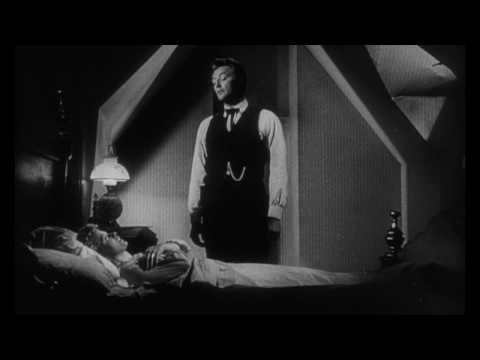
John Carpenter once said, “Horror is a reaction; it’s not a genre.”Â
Despite the propaganda set out by Netflix and Blockbuster (remember that one?) that condition malleable brains into believing that there are indeed a set of hard and fast rules to recognising a true horror film, the fact of the matter is you can find one tucked away in any genre. Horror can bleed into any and all culture, without having to rely on undead hockey players slaughtering camp counsellors, or predatory janitors fiddling with children’s dreams.
With that in mind, let’s take a look at 10 films that are guaranteed to creep you out as much as any other traditionally defined horror movie.
Pinocchio (1940)
Yes, that Pinocchio; the one with a talking cricket. A simple morality tale it may be, but the perils our young wooden boy navigates are decidedly terrifying for one so innocent. Barely 24 hours old and Pinocchio is pursued by predators Gideon and Honest John, who sell him into slavery to puppet master Stromboli. Whilst chid kidnapping and imprisonment is troubling as it is, Pinocchio ramps up the body horror with a visit to Pleasure Island, a resort for wayward boys where anything goes. Sent there by Honest John, Pinocchio soon learns its horrible secret: the boys are being turned into donkeys and sold into slavery. Anyone who has seen the film will testify that the boys’ cries for their mothers and for mercy mid-transformation can never be forgotten.
The Imposter (2012)
Texas boy Nicholas Barclay disappeared in 1994 at the age of 13. In 1997, he was found in Spain and flown back to his family, claiming that he had been kidnapped by a child prostitution ring. Nicholas’ family were, quite rightly, ecstatic to have their family back. Except, he wasn’t Nicholas. He was a 20-something Frenchman called Frédéric Bourdin. The Imposter is the documentary equivalent of a home invasion film. Director Bart Layton interviews not only Nicholas’ family, but Bourdin himself, who seems completely unrepentant for the horrific deception he pulled. The idea of taking in a stranger on the pretence of them being your son is not the only chilling part of the film; as the film concludes, more questions are raised about the real reason Barclay disappeared.
The Night of the Hunter (1955)
Like The Imposter, The Night of the Hunter sees a man allowed passage into a home under false pretences and not being everything he seems. Robert Mitchum plays Harry Powell, a self-appointed reverend with a penchant for knives, tattoos and women. Hearing about a con’s stashed loot, Powell worms his way into the life of the con’s ex-wife Willa (Shelley Winters). Suave and dashing when she first meets him, Powell devolves into a human monster whilst in pursuit of riches. Mitchum is both brilliant and chilling as the murderous priest, and in a scene that sees him chase Willa’s children up some cellar stairs, it’s hard not to be reminded of Max Schreck’s shadowy ascension in the finale of Nosferatu. Roger Ebert himself described the scene as a model for hundreds of horror movie scenes.
Snowtown (aka The Snowtown Murders) (2011)
Justin Kurzel’s directorial debut is perhaps one of the most shocking crime dramas to come out of Australia. It’s the kind of film you want to recommend to others, but equally, you don’t want to be that person recommended Snowtown. Based on the horrific atrocities that happened in Salisbury North, Adelaide, Snowtown‘s defining feature is a haunting performance by Daniel Henshall as John Bunting, a man who justified the multiple murders he instigated as a means to rid the world of what he saw as ‘perverts’. Bunting enters the home of Elizabeth Harvey (Louise Harris) all smiles and sunshine, but by the end he’ll have torn apart her family and corrupted her son Jamie Vlassakis (Lucas Pittaway). The horror of Snowtown comes from how rough and ready it all looks; there’s no Hollywood stylised sheen here. Kurzel refuses to glamorise anything and in doing so, makes an already tragic set of circumstances all the more despairing. Snowtown gets under your skin and refuses to leave.
The Act of Killing (2012)
On its own, the subject of Joshua Oppenheimer’s documentary is horrific enough; namely the Indonesian Mass Killings, which saw 500,000 to a million people purged. What makes The Act of Killing particularly frightful is how the subjects of Oppenheimer’s film ““ Anwar Congo and Adi Zulkadry, former gangsters turned powerful leaders of a death squad ““ reminisce about their part in Indonesia’s blood-soaked history. Given the opportunity to recreate their atrocities, Anwar Congo imitates westerns, gangster flicks and, yes, even musicals. Fashioning himself as a hero in his own story is chilling enough, but when he gets upset about playing a victim, it’s incredibly hard to feel sorry for him or admire his epiphany. It’s highly recommended you follow up The Act of Killing with its sequel-of-sorts, The Look of Silence.
Hit the next page for five more non-horror films to keep you up at night…













